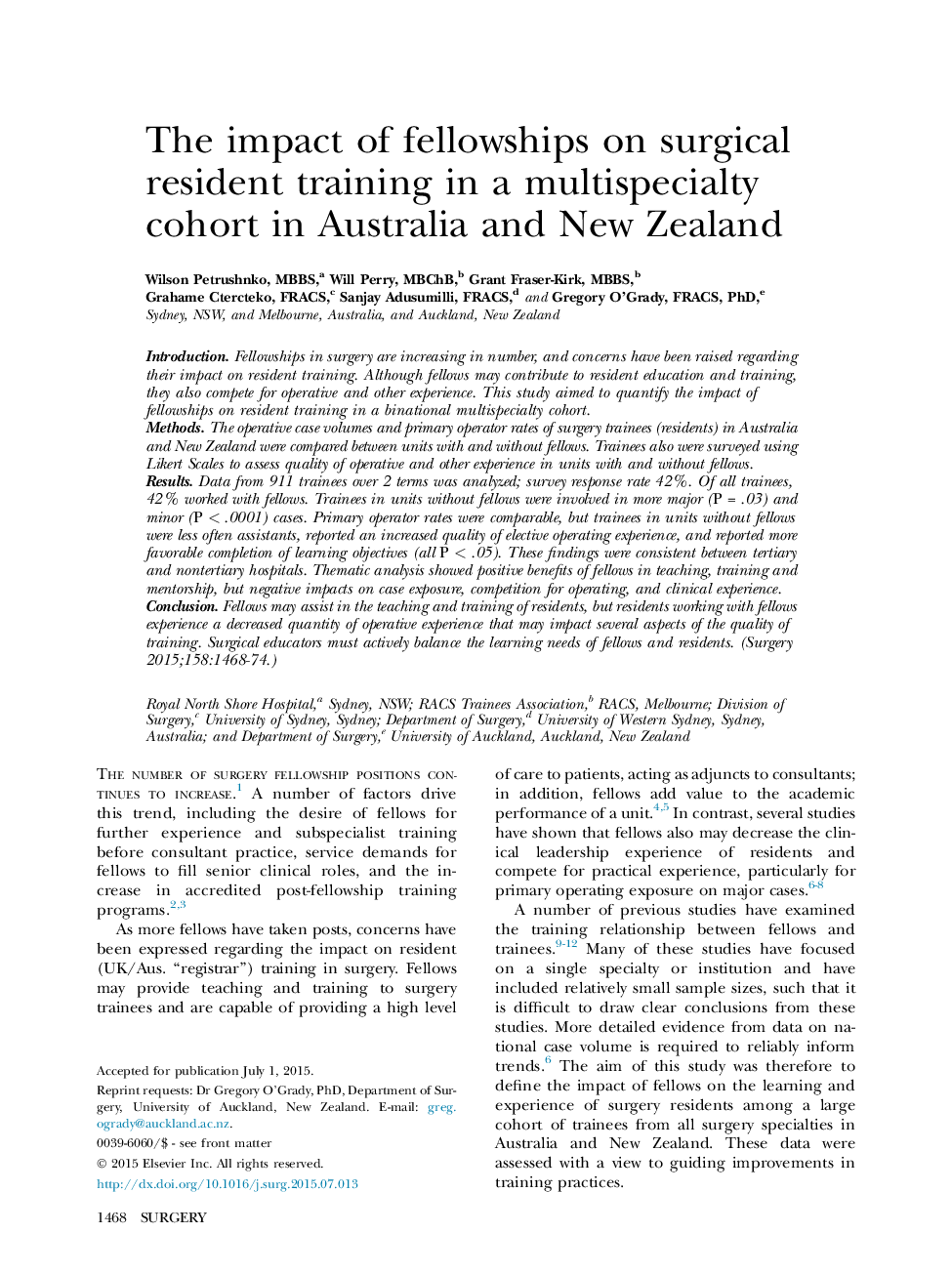| Article ID | Journal | Published Year | Pages | File Type |
|---|---|---|---|---|
| 4306400 | Surgery | 2015 | 7 Pages |
IntroductionFellowships in surgery are increasing in number, and concerns have been raised regarding their impact on resident training. Although fellows may contribute to resident education and training, they also compete for operative and other experience. This study aimed to quantify the impact of fellowships on resident training in a binational multispecialty cohort.MethodsThe operative case volumes and primary operator rates of surgery trainees (residents) in Australia and New Zealand were compared between units with and without fellows. Trainees also were surveyed using Likert Scales to assess quality of operative and other experience in units with and without fellows.ResultsData from 911 trainees over 2 terms was analyzed; survey response rate 42%. Of all trainees, 42% worked with fellows. Trainees in units without fellows were involved in more major (P = .03) and minor (P < .0001) cases. Primary operator rates were comparable, but trainees in units without fellows were less often assistants, reported an increased quality of elective operating experience, and reported more favorable completion of learning objectives (all P < .05). These findings were consistent between tertiary and nontertiary hospitals. Thematic analysis showed positive benefits of fellows in teaching, training and mentorship, but negative impacts on case exposure, competition for operating, and clinical experience.ConclusionFellows may assist in the teaching and training of residents, but residents working with fellows experience a decreased quantity of operative experience that may impact several aspects of the quality of training. Surgical educators must actively balance the learning needs of fellows and residents.
